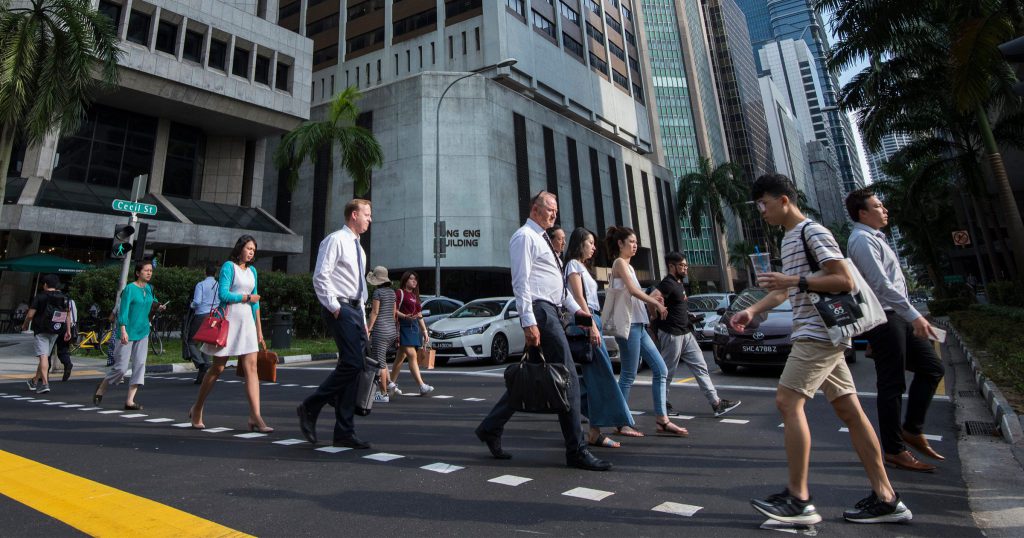Disclaimer: Opinions expressed below belong solely to the author.
According to a recent survey by (ISC)2, conducted among C-level executives in Singapore, Japan, US, UK and Germany, 85 per cent of them expect layoffs in case of economic slowdown or outright recession this year.
Out of 99 per cent in the city-state, 68 per cent are saying it’s “very likely”.

However, before we delve deeper into what it means, we have to bear in mind a few caveats of the study.
First of all, obviously this doesn’t represent absolutely all employers in Singapore (or elsewhere), but rather companies large enough to employ proper C-level suite of executives.
Secondly, due to the cybersecurity focus of (ISC)2, it focuses on companies with sizeable IT departments and some security staff on board.
Finally, the sample of 1,000 people across five countries (200 each), means the results may not be very precise — though that’s less of a concern in a small country like Singapore.
Still, while I would not bet money on these figures being relevant across the entire economy, it does not mean they are not useful in gauging sentiments of employers, particularly decision-makers in larger businesses.
Under attack

According to a different survey, published last year by Cybereason, 80 per cent of polled companies in Singapore reported being a victim of a ransomware attack in the past two years, with an average ransom paid of S$1.5 million.
“…among the Singapore participants, 85 per cent reported being hit again with a second ransomware attack — despite having paid the ransom. Of that number, 88 per cent said the second attack came in less than a month; 62 per cent said that the threat actors demanded a higher ransom amount.“
It is not surprising then to see the following responses among CXOs today:
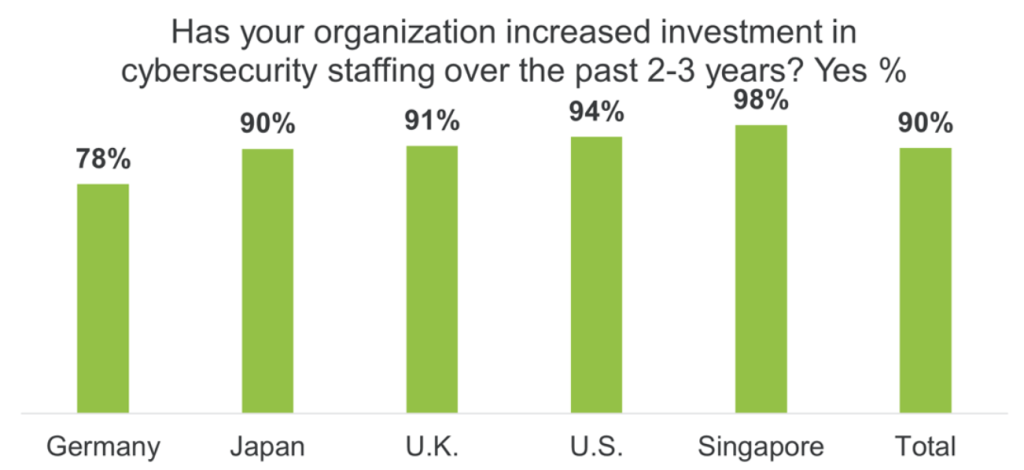
98 per cent of Singaporean executives reported investing more in cybersecurity in the past two to three years — virtually all of them (and sentiments are largely similar in other countries).
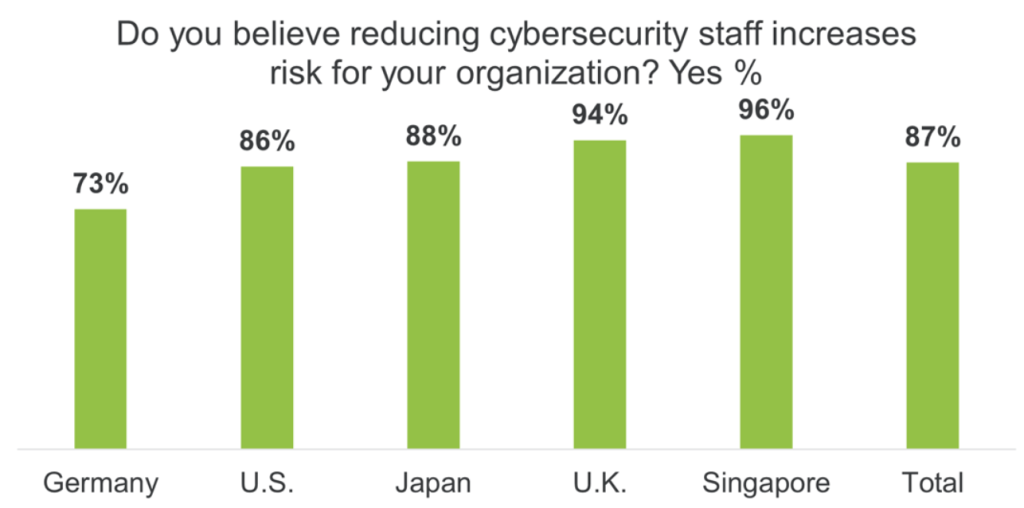
As a result, among all respondents, cybersecurity, followed by IT, professionals are the least likely to be laid off in case of an economic crisis, while non-technical departments are the first to go.
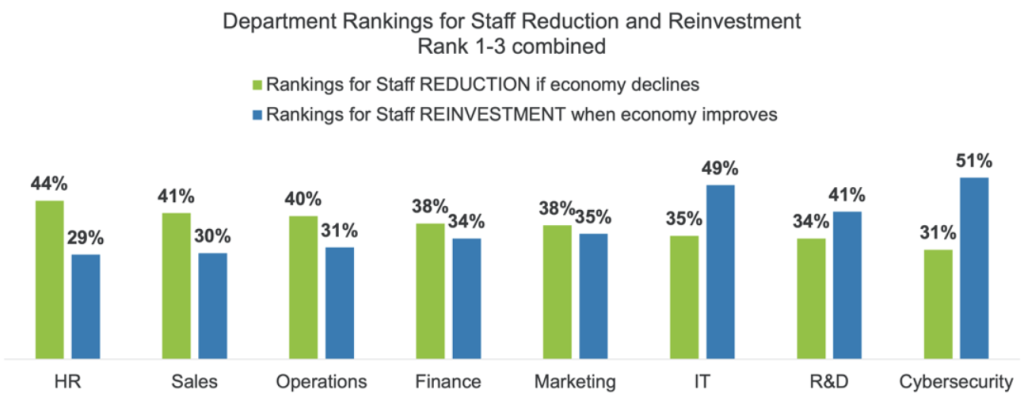
Moreover, not only are cybersecurity professionals the least likely to lose their jobs, but they are also the most likely to land a new one even if the worst happens, as a whopping 88 per cent of Singaporean executives would be eager to employ them amid talent shortage:
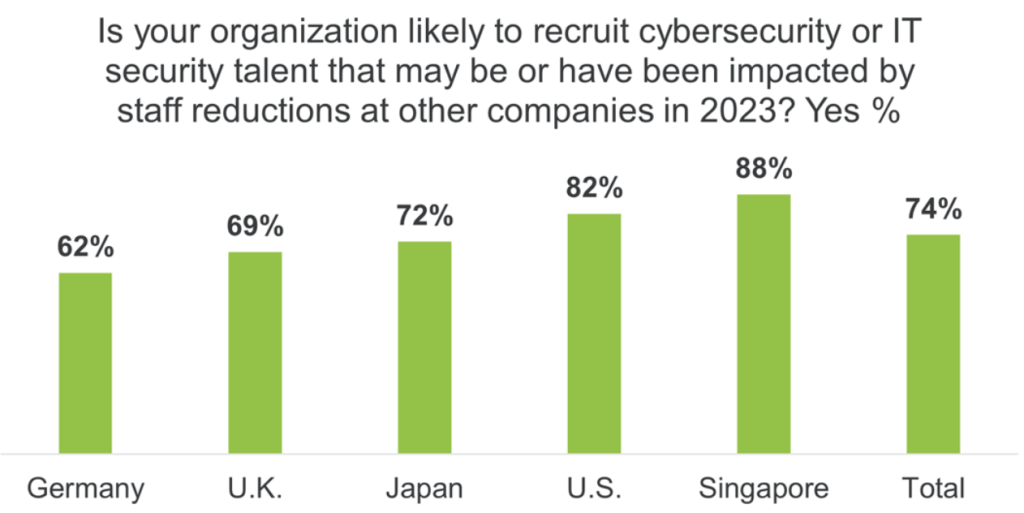
Lesson for all professions
If you’re not an IT security professional, you might think these findings do not apply to you and that you just have to brace yourself for the storm that a recession would certainly unleash. But there’s a good takeaway for everyone here.
Fundamentally, every job is a service performed in exchange for money. And that service has some value for the business, justifying the investment in staff and resources.
The reason cybersecurity staff are in a more secure position is that it is simply much easier to show this value.
Given that businesses risk millions of dollars in ransoms and losses due to disruptions of their operations, investing in a qualified security team is a no-brainer. Their value is very clear because of what’s at stake. You could hire a dozen professionals, paid S$100,000 per year, and that still would be less than a single ransomware hack.
But it does not mean other jobs do not contribute to the company, of course. It may just be harder to show it — but not impossible.
The more data you collect about your job, about your performance and, especially, about the monetary input (if possible) that your actions have had for the business, the more secure your position in the business will be — particularly when employers are forced to optimise their spending amid an economic downturn.
So, if you’re concerned about your future, the best thing to prepare for the worst is to start collecting this information, facts, milestones, figures, and ensure it makes its way to people who may decide your future.
Someone will have to go, but it doesn’t have to be you.
Featured Image Credit: Depositphotos










